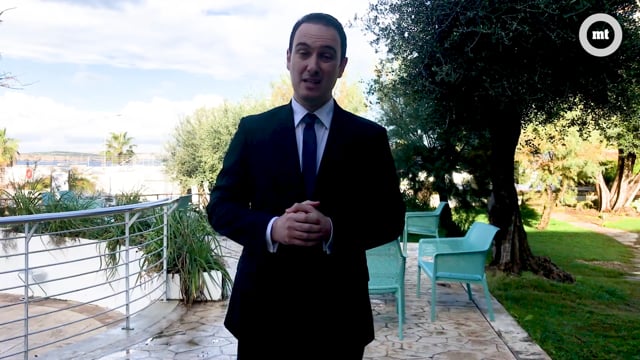[WATCH] Educators should be aware of the permanent nature of the internet says senior education official
Education authorises launch social media use guidelines for educators


It is important for educators to realise the permanent nature of the internet when engaging on social media, a senior education official cautioned.
Maria McNamara, director general for educational services said this at the launch of a draft consultation document on the guidelines for Educators in the appropriate use of electronic communication and social media on Friday.
“What we as educators put out there (on social media) stays out there forever... today we have the joy of Google and before you even step into an interview, the interviewer will know everything about you. They'll know where you were last night, what you were wearing and so on. It could be crucial to whether or not you get the job... like interviewers, students can also see what you post, and as public servants, we are role models for our students, and yes even for some parents."
She added that while she didn't expect educators to live their lives out as monks, the photo's that are put online can give off a very different impression to what an educator might want a student or parent to see.
"The reality is we are public servants, and as such even at home in our personal life we must maintain a level of professionalism, for ourselves and for our students."
The guidelines have been put into place with the intent of helping all educators to use their professional judgement to ensure that their own behaviour respects the teaching profession.
Parliamentary Secretary, Clifton Grima said that maintaining professional boundaries in all forms of communications, is vital to not only maintain public trust but the protection of both students and educators.
“Maintaining professional boundaries in all forms of communication, teleology-related or not, is vital to maintaining the public trust, however an appropriate professional relationship with students not only protects the student, but it also protects the educator."
Grima said that over the last few years due to social media the lines have blurred between professional and personal.
“Over the last few years the lines have blurred between the professional and personal. As electronic communication is a powerful tool that can be used to benefit students, it's essential that we create boundaries to protect the professionals that work within this sector.”
He said that educators should be aware that what they publish online, and what others publish of them could have damaging consequences if taken out of context by others.
Guidelines for educators to minimise risk when using electronic communication and social networking
Educators should:
- Use official channels of communication e.g. work e-mail addresses when communicating with students and parents; always maintain a formal and courteous and professional tone in communicating with students and ensure that professional boundaries are maintained.
- Be careful not to exchange private text, phone numbers, personal e-mail address or photos of a personal nature with students and parents.
- Decline learner-initiated ‘friend' requests from students and parents.
- Use direction when dealing with friend requests from parents and/ or carers. It is acceptable to decline these invitations and remind parents and/ or carers of more formal channels which they can discuss their child’s education.
- Behave online in a way in which does not call into question your position as a professional; manage ones privacy setting and keep them under review. These are particularly important in regard to photos.
- Ask others to remove any undesirable content one deems should be.
- Consider that conversations held online may not be private.
- Be aware of who may have access to what one posts.
- Assume that information one posts could be accessed or altered.
- Respect pupil privacy and confidentiality at all times.






.jpg)
















